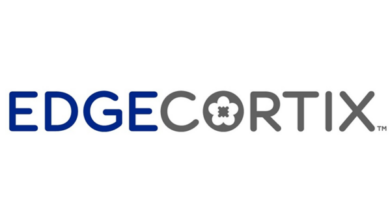Hyderabad: Centre for Cellular and Molecular Biology (CCMB) will now apply generative artificial intelligence (Generative AI) for therapeutic design and research in multiple disease areas. It signed an umbrella memorandam of understanding (MoU) with Aganitha Generative AI Solutions for small molecule and antibody design to translate its research and development findings into therapeutic candidates.CCMB and Aganitha on Wednesday signed an agreement to bring in deep science and deep tech for novel medicines to apply Generative AI solutions for designing novel therapeutics and research tools addressing needs in multiple disease areas. “Initial areas of collaboration include target analysis, small molecule design, antibody and nanobody engineering for addressing malaria, tuberculosis (TB) and neurological disorders. This strategic collaboration is designed to translate discoveries from the globally acclaimed research labs of CCMB into therapeutic candidates through the application of Aganitha’s Generative AI solutions for biopharma R&D,” CCMB said.CCMB senior principal scientist Dr Puran Singh Sijwali said, “We continue to struggle with controlling malaria due to drug resistance of the pathogen, lack of broadly available vaccines, and insecticide resistance of mosquitoes. Collaborative efforts of interdisciplinary experts are necessary to develop new drugs and vaccines for malaria. Towards this goal, we are leveraging Aganitha’s Generative AI capabilities in small molecules space for validated parasite drug targets to predict, test, and optimise pote-ntial antimalarial compounds.” Dr Raghunand Tirumalai, senior principal scientist at CCMB, summarised the advances that could be made through the collaboration in TB research. “In collaboration with Aganitha, we are working towards the structure-based discovery of small molecule inhibitors targeting essential proteins of ‘Mycobacterium tuberculosis’. We anticipate that this will lead to the identification of multiple novel anti-TB therapeutic leads,” he added. CCMB senior principal scientist Dr Janesh Kumar, who is studying neurotransmission in the central nervous system, noted, “The collaboration to develop nanobody binders targeting a class of neurotransmitter receptors marks a significant stride in neuroscience and pharmacology. These nanobodies may serve as precise molecular tools to modulate GluD1 receptor activity.”
We also published the following articles recently
Build next-generation AI solutions with Generative AI & Prompt Engineering programme by IISc in collaboration with TalentSprint
India is advancing in digital transformation with AI-based solutions reshaping business operations. Generative AI, a key subset, is projected to be a USD 1.3 trillion market by 2032, driving innovation in various sectors like manufacturing, healthcare, finance, and agriculture.
Scorpio, Horoscope Today, May 29, 2024: Powerful day for therapeutic activities
Scorpio, influenced by the Moon in Pisces and Pluto, delves into deep emotions, fostering intimate conversations and revelations.
Finland researcher connects Music with Neuroscience
Nandhini Natrajan explores the impact of music therapy on the human mind through a unique blend of psychology and neuroscience, conducting research in Finland and Nordic countries with highly developed systems.




